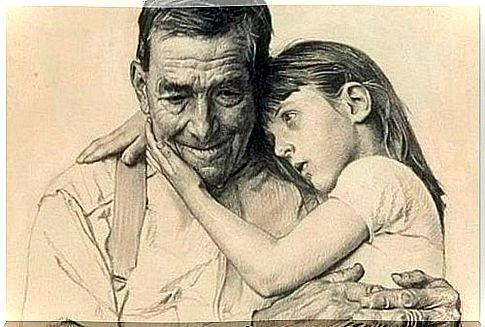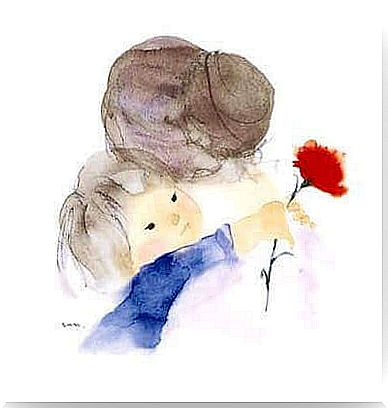Grandparents Don’t Die, They Always Live In Our Hearts

Grandparents never really die. Their legacy will always be with us and they will live on in our hearts.
In a society focused on material possessions , few things enrich our lives as the memories of the affection and shared stories and special moments with our grandparents.
Many of us have a favorite grandma or grandpa that we often think about. Their influence on our lives lives on in our family every time we do something unique or special to them: bake a cake according to their recipe or treat a sore throat with one of their recipes.
We keep their memory alive by focusing on what really matters in life: the memory of those we love and the people who mean the most to us.
We invite you to reflect on this with us today.
Grandparents don’t die, they live in our hearts
One of the hardest moments in life is saying goodbye to grandparents during your childhood. As an adult, loss has a different impact because we have so many tools to deal with this painful part of life.
What is the best way to help a child say goodbye to their grandparents? We will show you some steps that will help.

When the little ones are sad
Every child grieves when faced with the loss of someone important to them. It is something that is unforgettable and, although it may seem like the child is doing well, they will show subtle hints of how they are experiencing it inside.
Child experts recommend being honest with children and being careful about the words you choose. Don’t use metaphors like, “Grandpa is with the angels now” or “Grandma is just resting.”
Ways to help your child
- Do not use expressions that may confuse a child. Since this is their first experience of death, they must learn what it means: that they will no longer see their grandfather or grandmother, but that we think of them with love every day.
- Another thing to keep in mind is their desire to express themselves emotionally. Don’t hide your grief to prevent your children from seeing that you are in pain. Otherwise, they will learn that it is acceptable to hide your feelings.
- Don’t be afraid to express it and let your kids cry if they need to.
- We must learn to see when a child is in pain. They probably won’t be able to process what happened until they are a little older. However, you can see it in their drawings, silence and even nightmares.
- Another mistake many parents make is holding their children back from saying goodbye to their grandparents or not attending the funeral. Like it or not, saying goodbye to a grandparent who has passed away is part of a child’s coping process.
Of course, a child’s reaction to the death of a grandparent depends on the child’s age. We can assume that from the age of 6 or 7 a child begins to understand this difficult aspect of life: we all have to say goodbye to our grandparents at some point.

What they leave behind
A grandparent can leave behind a house, an apple farm or beautiful silverware over a hundred years old. But this means nothing to the heart.
Grandparents were once the parents who helped us become who we are today. They’ve made mistakes, of course, but that doesn’t outweigh what they’ve done for us.
- This doubles the legacy of a grandparent and is incredibly powerful. They symbolize family ties and a common identity that we cannot and should not forget.
- A child will always cherish the moments he or she shared with their grandparents. Because this relationship is different from the relationship with his parents: it is warm and completely emotional.
- A tapestry woven with thousands of stories, afternoon walks from school home. They live on in our memories, like a cake with an unmistakable smell that we still remember and a voice we will never forget.

Saying goodbye to a grandparent who has done so much for us is never easy. However, growing up and becoming an adult means that we have to face these painful moments.
They are not dead, they still live on in our hearts and they still love us there. We keep them alive through that precious gift we share: the gift of memory.









